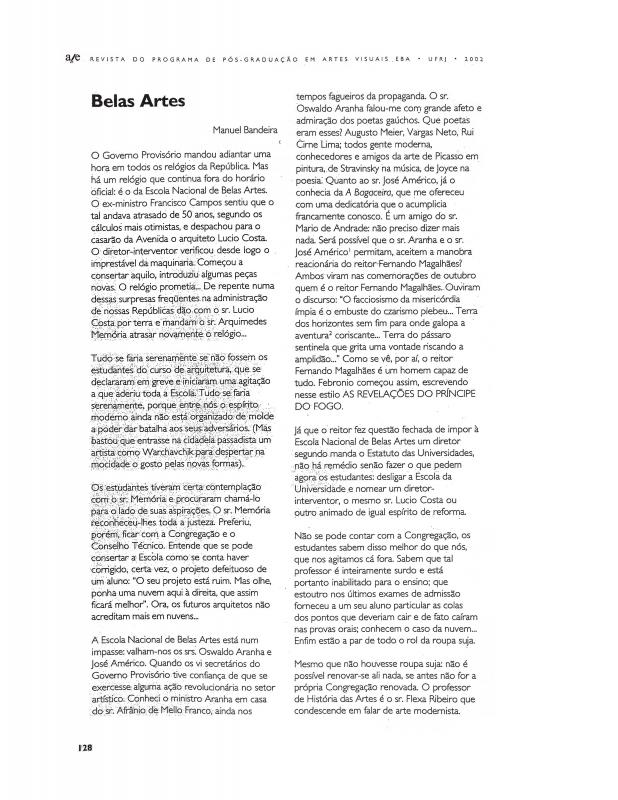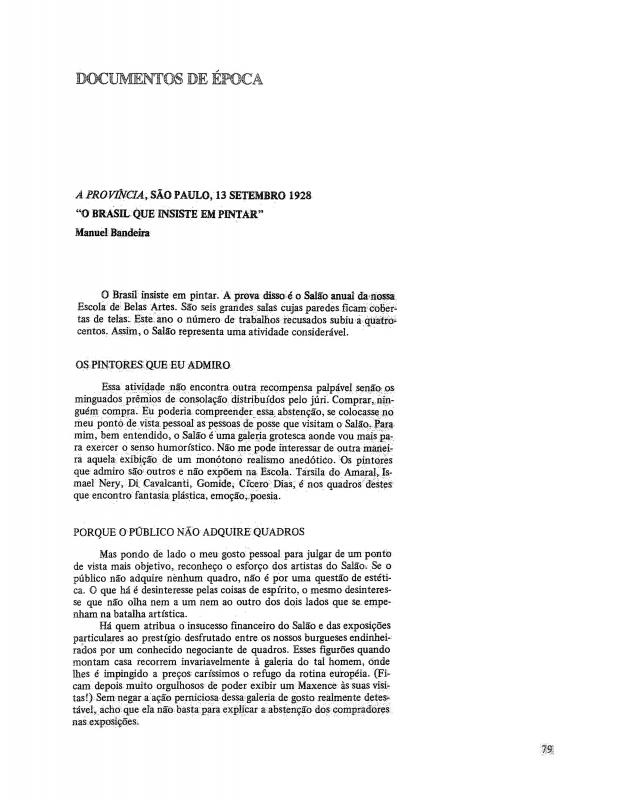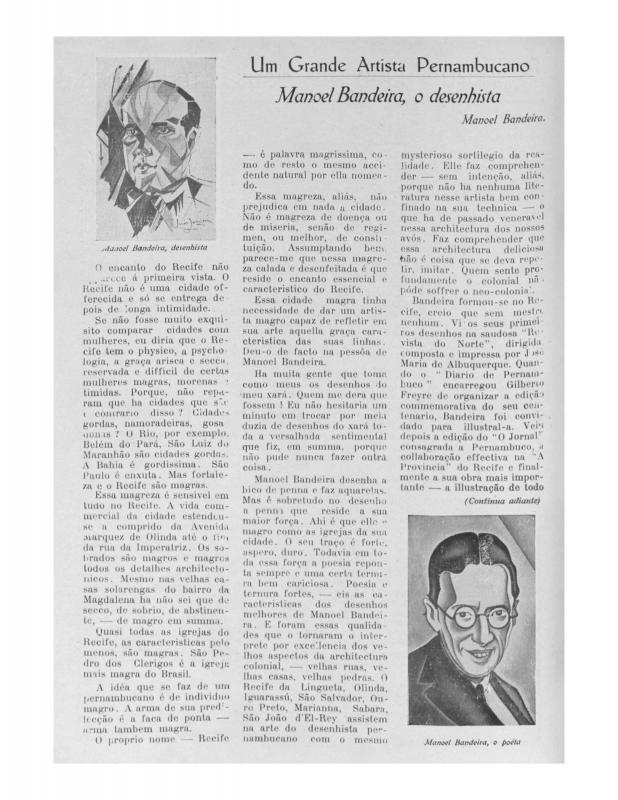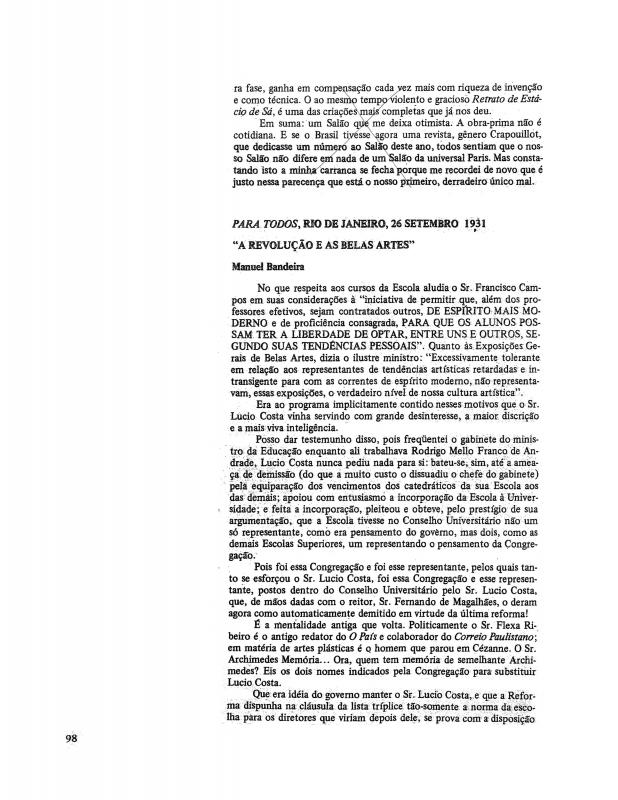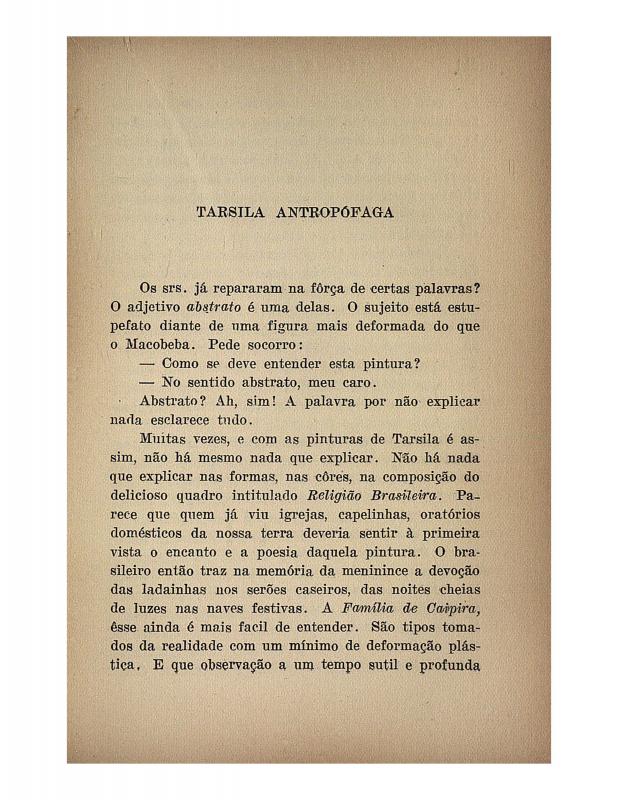Without a doubt, Manuel Bandeira (1886–1968) is one of the main modern writers and poets of Brazil. Two of his poems, Evocação de Recife and Vou-me embora pra Passárgada, are among the most popularly known and referenced. Toward the end of the 1920s and early 1930s, he was known as an ardent defender of the “modernist” cause against a highly-politicized core group that was hostile to any sort of artistic experimentation. With that in mind, in 1931 Bandeira supported the innovative academic management of architect Lucio Costa at the Escola Nacional de Belas Artes, and consequently to the radical changes that implied the drastic reform in the teaching of art in the country.
The so-called Salão de 31 exhibition (38th Exposição de Belas Artes), carried out and organized by the Escola Nacional de Belas Artes (Rio de Janeiro, 1931) during the administration of Lucio Costa, marked an unquestionable transformation in Brazilian art, in its attempt to link modern art to the teaching of art and its dissemination within these conservative institutions.
[For further reading, please refer to the ICAA digital archive and the following texts by the author: “Belas Artes” (doc. no. 1075449); “O Brasil que insiste em pintar” (doc. no. 1075573); “Um grande artista pernambucano: Manoel Bandeira, o desenhista” (doc. no. 1110818); “Retratos de meus pintores” (doc. no. 1111005); “A revolução e as Belas Artes” (doc. no. 1110996); and “Tarsila antropófaga” (doc. no. 781956)].

